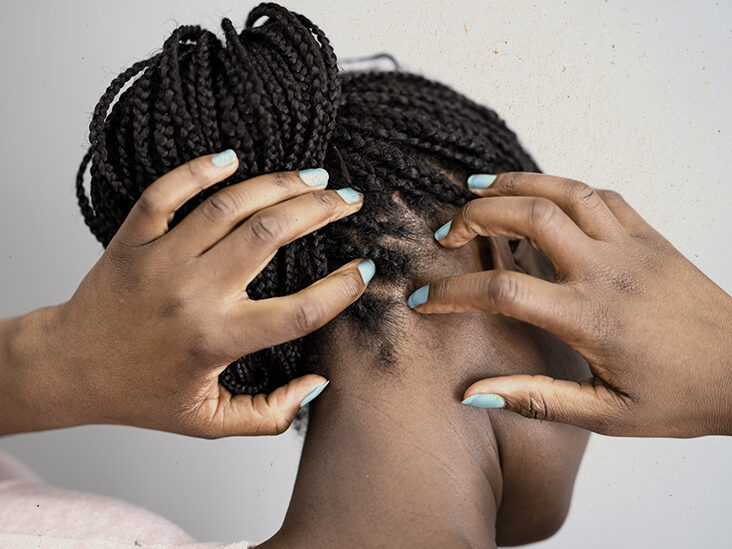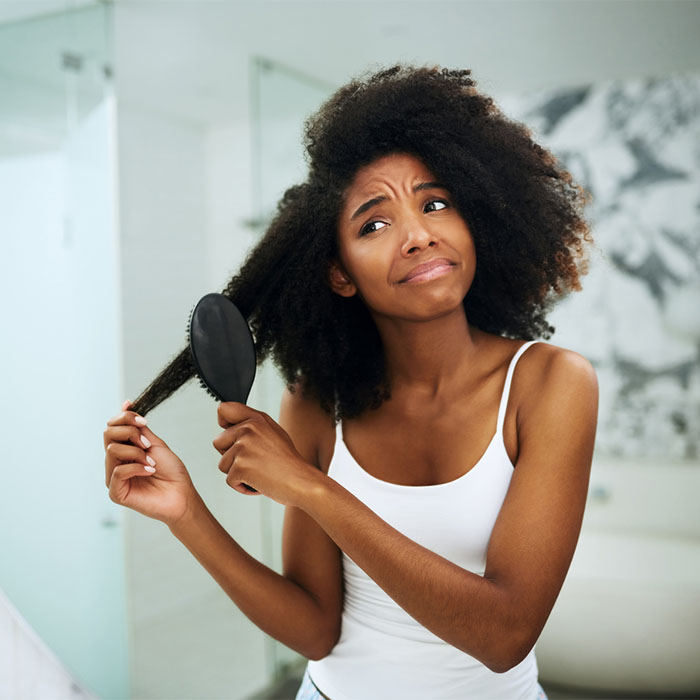
Anyone with a dry scalp knows that scalp itching is nothing to joke about.
This painful, persistent itching may lead to irritation of the scalp and trauma to the skin barrier.
As always, before trying to fix an issue, you’ll need to know what’s behind it first.
So, what could be the cause of scalp itching? Dryness, dandruff may cause scalp itchiness.However, in more serious cases, which include inflammation and painful pustules, it may be caused by scalp folliculitis.
What is Scalp Folliculitis?
Scalp folliculitis is an inflammatory disorder of hair follicles presented by small itchy pustules.
This hair condition greatly resembles scalp acne and affects the frontal hairline.
Scalp folliculitis may be caused by ingrown hairs or infection caused by bacteria, fungus or mites.
Symptoms of this condition include itchiness, redness and tender bumps at the front of the front head.
There are two types of scalp folliculitis; superficial folliculitis, a mild and easily treated form of this condition, and deep folliculitis, which is much harder to control and causes deeper infections to the hair follicles.

What Are the Symptoms of Scalp Folliculitis?
Without treatment, scalp folliculitis may persist and get worse over time. This condition could worsen into hard, painful bumps, affecting your quality of life. But how can you tell you have scalp folliculitis? Here are some symptoms of this condition:
- Small itchy lesions: A common symptom of scalp folliculitis is small, itchy lesions around the front of the scalp. These itchy lesions are painful and easily infected, so scratching them gives room for bacteria to penetrate them.
- Red, inflamed skin: Another symptom of scalp folliculitis is red, inflamed skin on the scalp. Smaller infractions may present themselves as a patch on the scalp, while larger infections grow into individual pustules.
- A burning scalp: A burning sensation on the scalp is another sign of scalp folliculitis. This burning sensation is accompanied by pain and tenderness.
- Deep pustules: white heads on the scalp are another symptom of scalp folliculitis.
- Hair loss: Unlike other symptoms, hair loss is a symptom of more severe scalp folliculitis.
Causes of Scalp Folliculitis
An inflammation of the hair follicle, scalp folliculitis occurs when bacteria infect the tiny pockets in the skin.
This condition is often caused by bacteria, yeasts, fungus, and mites.
These organisms include microorganism species known as Cutibacterium acnes, Staphylococcus aureus, Malassezia species, or Demodex folliculorum.
It could also result from weak immune, acne, dermatitis and other habits like shaving with unclean razors.
Treating Scalp Folliculitis
Treating scalp folliculitis largely depends on the cause and severity of each individual case. While it is advisable to consult your doctor first, there are at-home remedies that”ll provide you with some relief before your appointment; they include:
- Using a dandruff shampoo: Wash your scalp with anti-dandruff shampoos containing antifungal agents like ketoconazole or ciclopirox. These shampoos remove yeast, oil and other microbes from the hair follicles, reducing the risk of inflammation and infection.
- Avoid hot water: When treating scalp folliculitis, it’s advisable to use lukewarm water over hot water. Hot water aggravates the scalp’s itchiness and causes dryness of the skin.
- Over-the-counter-itch relief: Rather than scratching your itchy scalp, opt for an over-the-counter hydrocortisone cream, and antihistamines are helpful to relieve symptoms of itching.
- Prescribed topical or oral antibiotics/antifungals: Prescription topical antibiotics, steroid lotion and creams also help control inflammation.
When to See a Physician
While scalp folliculitis symptoms may not seem serious at first, it is important to seek a dermatologist’s opinion if your symptoms persist for a proper diagnosis.
Final Words
If left untreated, scalp folliculitis can have serious side effects. If you think you could have scalp folliculitis, you should use an anti-dandruff shampoo. However, if symptoms last for more than a week, you should see a dermatologist.
[ad unit=2]






